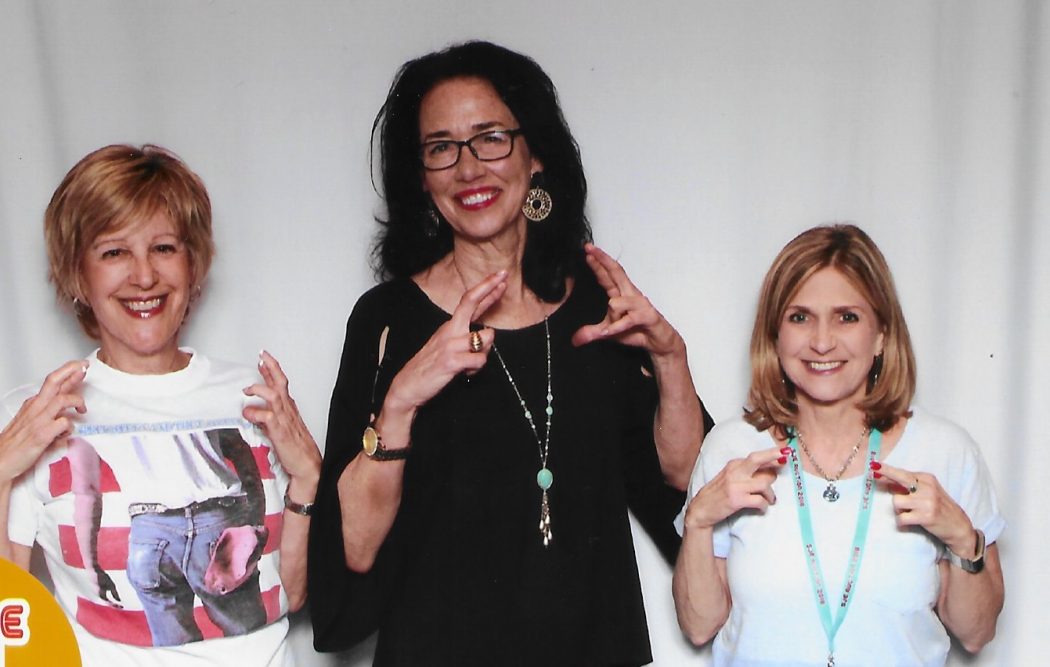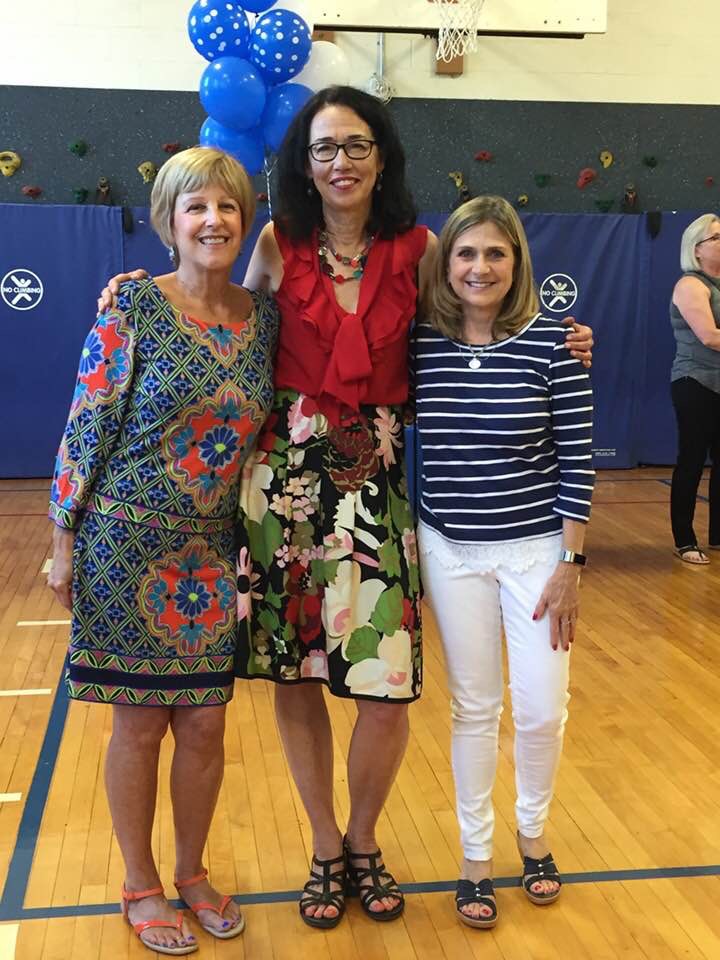
Cyndy Jaramenko, Melissa Alloway and Heather Wood (photo courtesy of Melissa Alloway).
The school year ended with the retirement of three longtime educators at Stonewall Jackson Elementary (now Mockingbird Elementary). Melissa Alloway, Cyndy Jaramenko and Heather Wood taught deaf education at the East Dallas school for a total of 117 years. Stonewall is the regional school for the deaf in Dallas ISD.
Alloway has worked at Stonewall for 41 years, and it is the only school she has ever known. She started there as an itinerant teacher after college at the University of Texas at Austin. She was inspired to work with deaf students by the movie “The Miracle Worker” about Helen Keller. “She was bright and smart but needed someone to teach her how to communicate,” says Alloway. She embraced that role at Stonewall in her time there, and earned Dallas ISD’s teacher of the year honors in 1995.
She taught first through third grade deaf edcuation classes at the school, and remembers a time when the school was half deaf children and half neighborhood students, with only 200 total kids. Now there is around 30 deaf students and over 600 total. The neighborhood has many more young families, and there are more schools that teach deaf students today than when she started.
Alloway raised two children, who both live in New York. She plans to spend more time with them and continue to substitute teach at the school she loves so much. Her relationship with the students and seeing them grow encouraged her to keep teaching. “The main thing I love is the children,” she says. “I am fascinated by language development and how the kids need to learn a way to communicate. It is challenging but also interesting and rewarding.”
Jaramenko started at Stonewall after college at SMU and taught there for 40 years. When she was young, she saw deaf children signing while at the pool and was inspired to learn sign language, eventually developing a desire to teach deaf education.
She taught fourth and fifth grade and was also a communications specialist, where she worked with the students on communication, language and listening skills. Jaramenko enjoys being an advocate for the students with the community and even their own families. “So many students came from families that don’t sign. Our job provides connection with the world. We push for them with their families and push for them within the boundaries of school to have their needs met.”
She remembers an era of Stonewall when all the students learned sign language, improving communication and community between the hearing and deaf students. She says that they aren’t able to do that because of the pressure of state testing. “Now there is no time in the day for that,” she says.
Jaramenko has a son that she can see more frequently in her retirement, and needs to make a plan on how spend her newfound time off. She will probably sub, but wants to take her time. “I don’t want to rush it,” she says. “I want to feel retired for a little bit.”
Wood is spending her summer at a water sports camp, in the sun and on the water as she has prior summers. Her retirement after 34 years at Stonewall hasn’t sunk in just yet, but she knows it will. Wood is from Oregon, and worked for three years at the Oregon School for the Deaf in Salem for three years before making the leap to Texas.
She found Stonewall, and it just stuck. “I was just very charmed by the school from the get go. I didn’t think I would stay as long as I did, but it just felt like home,” she says. She was inspired by a video about deaf children, and was encouraged by her father to move into deaf education. She taught second through sixth grade at Stonewall over the years.
She is grateful with her friendship with Alloway and Jaramenko, who were great friends outside of school as well. “The support that we offered each other is the heart of our friendship,” she says.
Wood says that having two principals that served for over 15 years each along the way made for a stable environment and helped bond the staff. Principal longevity is an issue that neighborhood schools have struggled with lately.
She wants to sub at Stonewall, but is looking forward to her time off to travel the world. “I will miss it, but it was a good run,” she says.
This year, there was a 60-year reunion for the deaf education at Stonewall, where the teachers were able to see many of their former students, some nearly 50 years old. It was a special way for them to end their careers serving the children at school.
For the three women, the magnitude of the moment hasn’t really sunk in. They packed up their classrooms and headed home for the summer each year when they were teaching, so they say it won’t sink in until school starts again. They all lamented the increased focus on testing and pressure to get the students to pass state tests, which was increasingly difficult for the deaf students. They felt that depth and engagement was sacrificed for covering material on a test.
“There was not as much time now to do the hands on activities, which was fun and joyful for the kids and the teachers too,” Wood says. “It has changed a lot in the course of time, and I don’t know if it has changed for the better.”
The three made the joint decision to retire this year because they could not imagine teaching without their longtime compatriots. To deal with the melancholy they may feel about not being at a school where they spent the last four decades, they plan to be on the beach in the Dominican Republic for the first day of school this August.

Cyndy Jaramenko, Melissa Alloway and Heather Wood (photo courtesy of Melissa Alloway).





